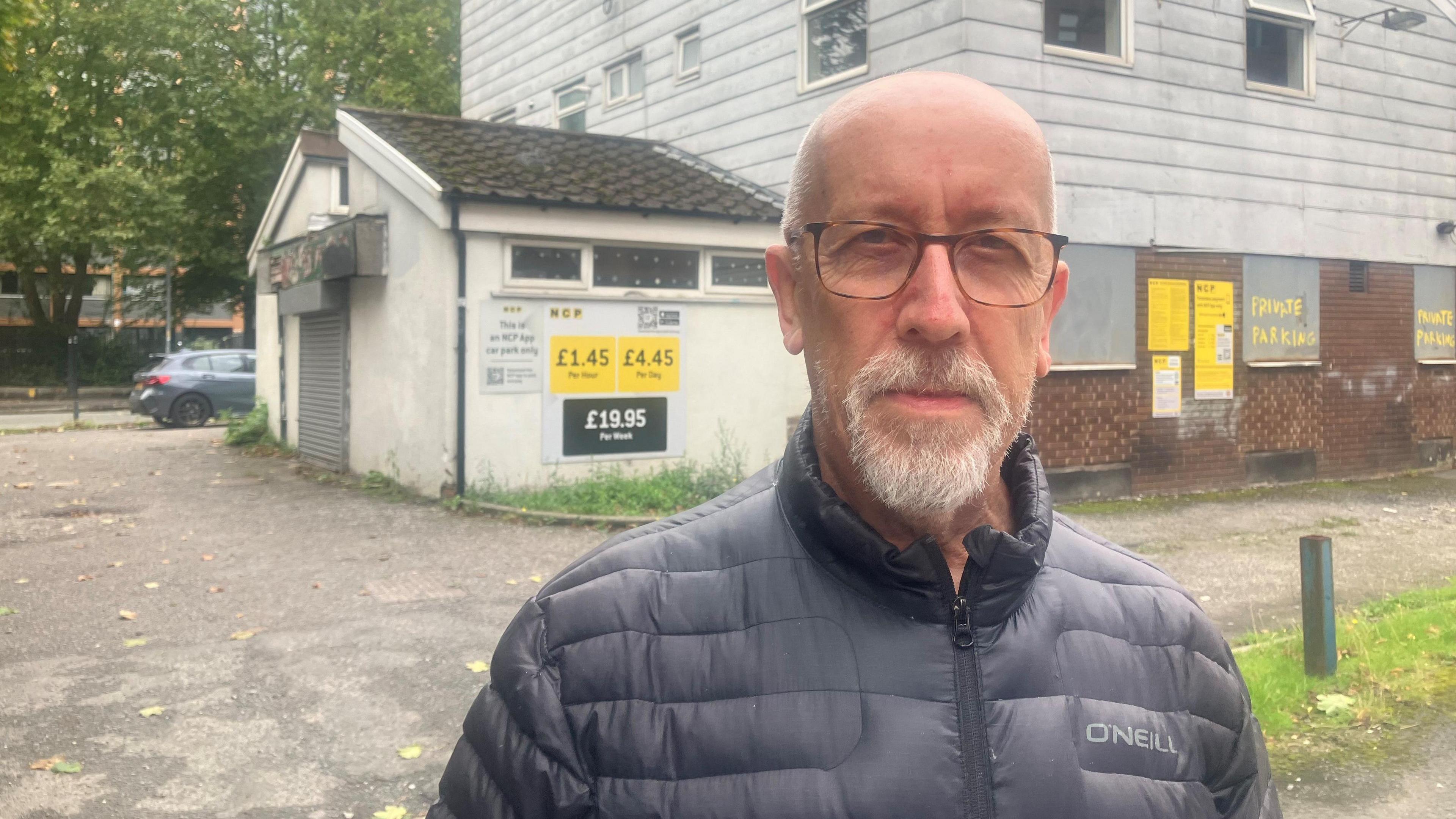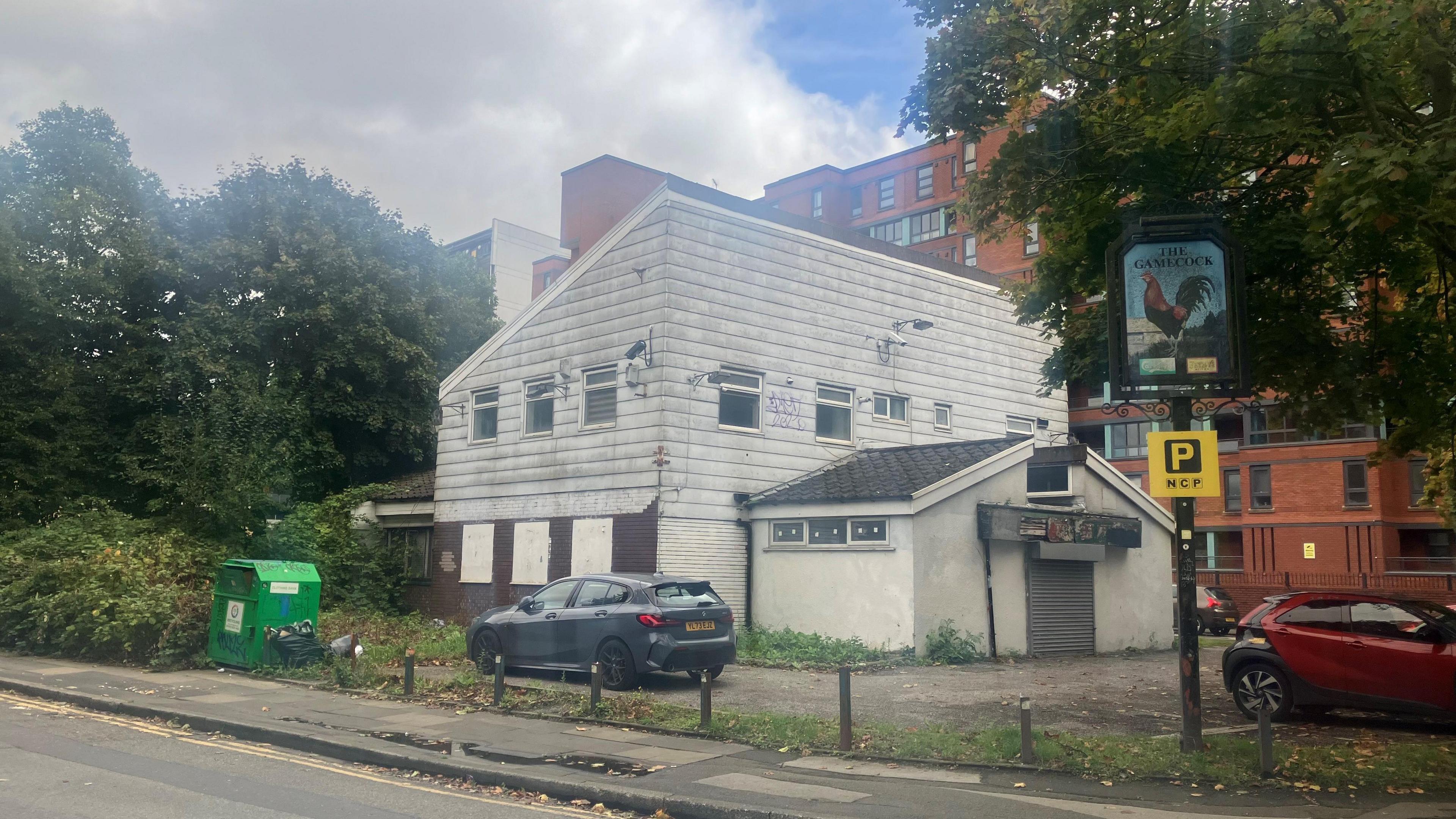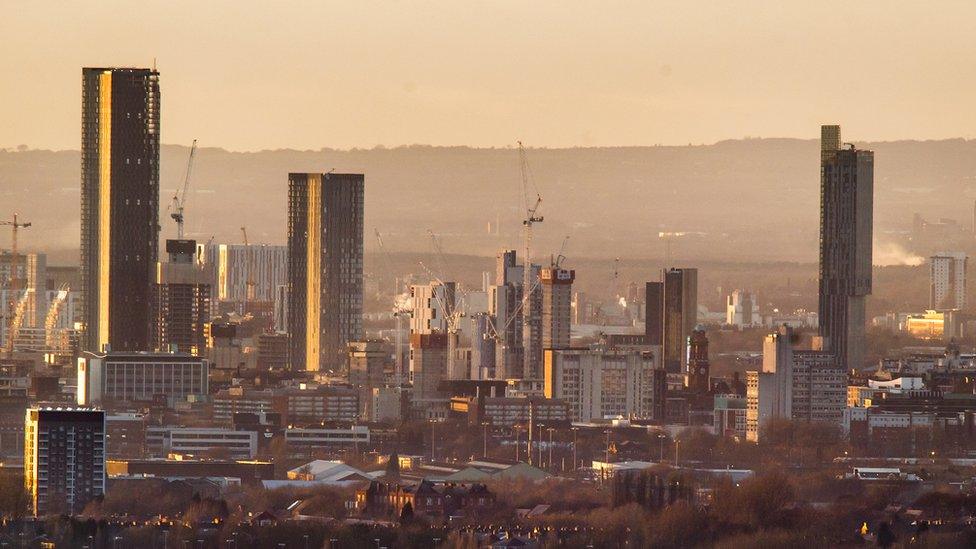Residents mount legal challenge over student flat plan

Local campaigners have opposed the plan to turn the pub into student flats
- Published
A resident-led campaign group has mounted a legal challenge against plans to turn a derelict pub into a nine-storey high block of student flats.
Block the Block have been given permission by the High Court for a judicial review into council-approved plans to transform the Gamecock pub near the University of Manchester.
Spokesman Roger Howard said the group believe the project is unlawful, claiming councillors were misled by planning officers when deciding on the application.
Manchester City Council said the authority would not comment on legal matters.
Four applications by developers Curlew Alternatives Eighth Property LP for the pub on Boundary Lane in Hulme were knocked back until the council approved the plans with a reduced height in June.
The final plans include a 146-bed student block, nine-storey's high.
Campaigners argue the councillors who ultimately signed the proposal off were wrongly told by officers they had no lawful basis on which to refuse, despite the repeated objections of residents.
A judge has ruled the campaigners may apply for a judicial review after finding the argument could be "reasonably and realistically" made in court.
Mr Howard said the plan was a "step too far" for an inner city area where community space was "at a premium".
Residents had "nothing against students" but wanted long-term affordable housing or community space instead, he added.

Plans will see the Gamecock pub turned into a nine-story block
Resident Sally Casey said the plans had been "pushed through", adding the process had been a "shambles from start to finish".
"We have an alternative vision for the site and will continue to fight for the affordable social housing Hulme needs," she said.
Block the Block, which is run by residents of the surrounding Hopton Court & Aquarius Estate, has also launched a fundraising campaign to help pay for the legal challenge.
The row is a flash point in the wider issue of development in Manchester city centre and the availability of low-cost affordable housing.
Last month, the city council approved more than 2,300 flats in five giant skyscrapers, but none are classed as affordable.
'Not viable'
In that case, a review by an independent assessor on behalf of the council found that the delivery of affordable housing on this scheme would not be viable.
James Whittaker, managing director of Peel Waters, said major building projects were an "expensive process", and adding affordable housing targets can make them tough to deliver.
Manchester has a target to build 36,000 new homes in the city by 2032, with aim to have 10,000 new affordable properties, including 3000 in the city centre.
To help it achieve that, the council will allow luxury city-centre skyscrapers to go ahead - with no affordable housing - and take a payment from the developers.
Those funds are used to help build affordable housing elsewhere in the city, where its cheaper to build new homes.
Mr Howard said he could see the "Manc-hattan high-rise blocks" from his home in nearby Hulme.
"Maybe the city councillors think its a great thing, maybe the business people think it's a great thing, maybe the corporates who are encroaching on our space think it's the great thing", he said
"But from where I am sitting it's horrendous and I don't want to live in that environment."
Listen to the best of BBC Radio Manchester on Sounds and follow BBC Manchester on Facebook, external, X, external and Instagram, external. You can also send story ideas to northwest.newsonline@bbc.co.uk, external
Related topics
- Published14 November 2019
